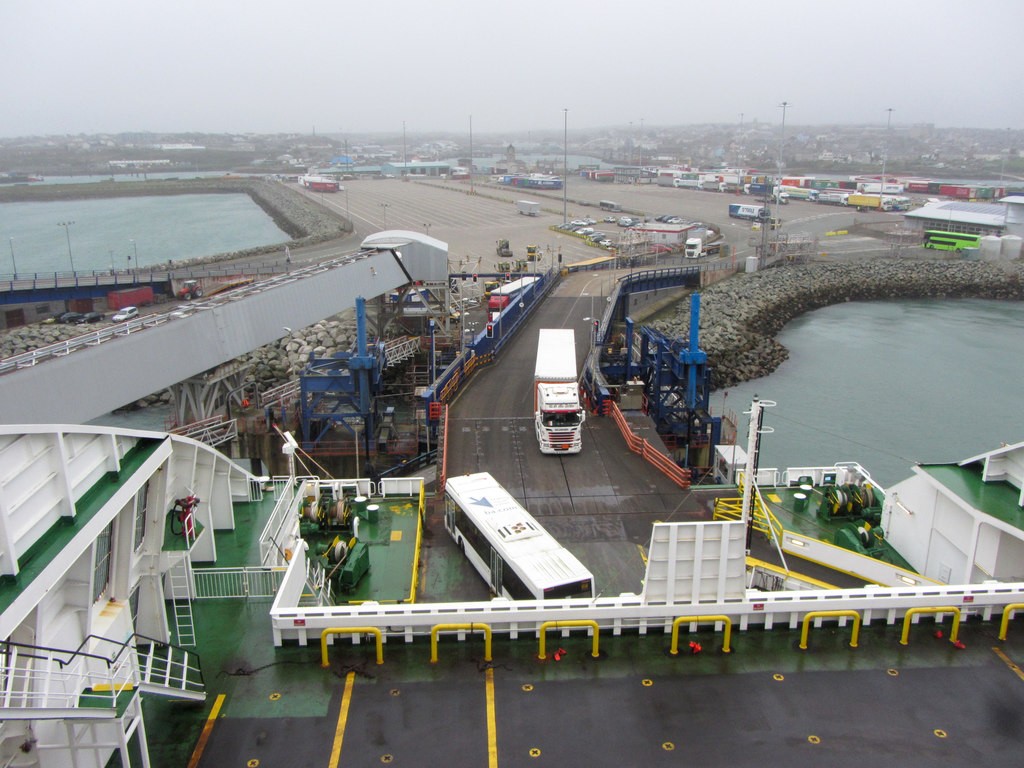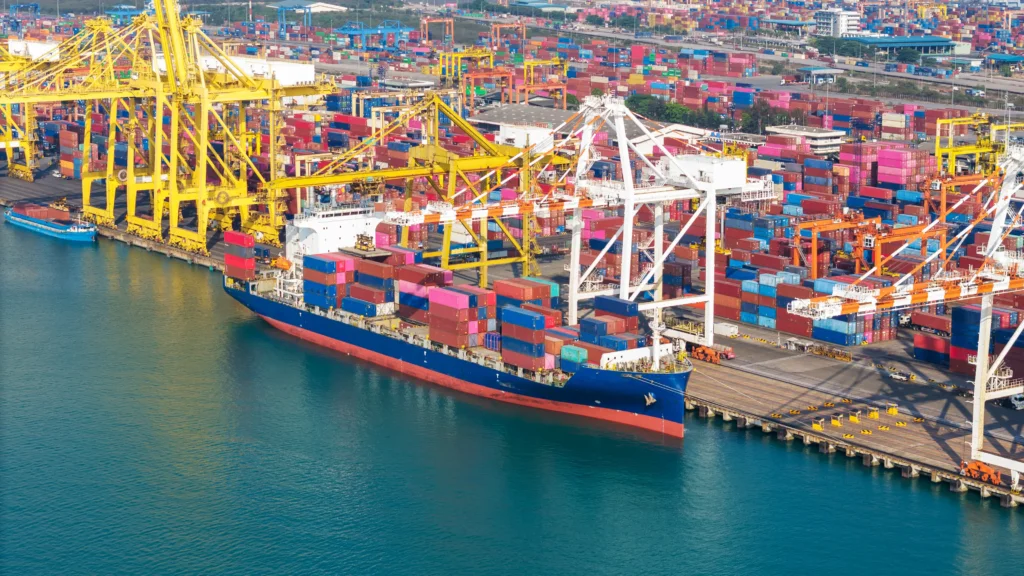A new report by the Welsh Parliament’s Economy, Trade and Rural Affairs Committee has criticised the Welsh Government’s handling of the Holyhead Port closure, warning that poor communication, unclear ministerial responsibility and a lack of strategic planning may have exacerbated the disruption caused by Storm Darragh.
The closure, which lasted from 7 December 2024 to 16 January 2025, followed two berthing incidents at Terminal 3 during strong onshore winds, leading to the collapse of a key monopile. The incident shut down Holyhead, Wales’ busiest ferry port, at a critical time for pre-Christmas trade flows between Ireland and the UK.
The Committee concluded that “a lack of speed and urgency” in the Welsh Government’s response left businesses and freight operators without essential information. According to the Road Haulage Association (RHA), the organisation only received contact from Welsh officials on Christmas Eve—more than two weeks after the closure began.
“The first contact that I had with the Welsh civil service throughout this whole process was that I got an e-mail on Christmas Eve, giving me an update on the Port. By that time, not only had the issue been live for nearly two weeks, but we had also secured the relaxation of drivers’ hours, and that had run out by the time that I was first notified,” said a representative of the RHA.
The Irish Road Haulage Association (IRHA) also expressed frustration at the lack of clear communication:
“The communication at the advent of this storm was dire. There was a build-up of over 1,000 trailers in the Holyhead area, and they kept pouring in, because we weren’t told to stop, that it wouldn’t be happening,” the IRHA stated.
Local businesses and hauliers were significantly affected. One haulier reported losses of over £50,000 due to drivers being forced to sit idle at the docks in the run-up to Christmas. Retail, hospitality, and logistics companies in Holyhead and across North Wales reported sharp falls in trade and footfall. A survey conducted by the Isle of Anglesey County Council found that 54% of businesses believed jobs were at risk, and nearly all respondents feared the ongoing impact of reduced sailings.
The Committee also raised serious concerns over the lack of driver facilities in Holyhead. The RHA described the area as “really poorly served in terms of rest facilities, hygiene facilities et cetera”, with only 30 to 50 parking spaces available and limited amenities.
“Although there is a privately owned small concern that is available, you’re only looking at between 30 and 50 spaces there, and in terms of facilities, it’s a portaloo and a burger van,” the RHA explained.
The report criticises the Welsh Government for missing its own 2024 deadline to publish a new freight and ports strategy, noting that the current policy framework dates back to 2008. It adds that the Government’s reliance on delayed HMRC trade data limited its ability to assess the economic impact of the closure in real-time.
According to HMRC figures quoted in the report, the value of trade through Holyhead in December 2024 dropped to £432.2 million—less than half the £922.6 million recorded in December 2023.
Although the Committee welcomed the establishment of the Irish Sea Taskforce, it warned that expectations were high and progress slow. The first meeting did not take place until 27 March 2025, nearly four months after the incident.
The report sets out six formal recommendations, including urgent financial support for affected businesses, a “lessons learned” review of the Government’s response, and the immediate publication of long-overdue freight and maritime strategies.
The Committee concluded:
“We believe that if there had been greater engagement with the ports and freight sectors, and the recommendations set out in the Committee’s A New Direction for HGV Drivers report had been implemented, then Welsh Government would have been in a better position to respond to this crisis.”











